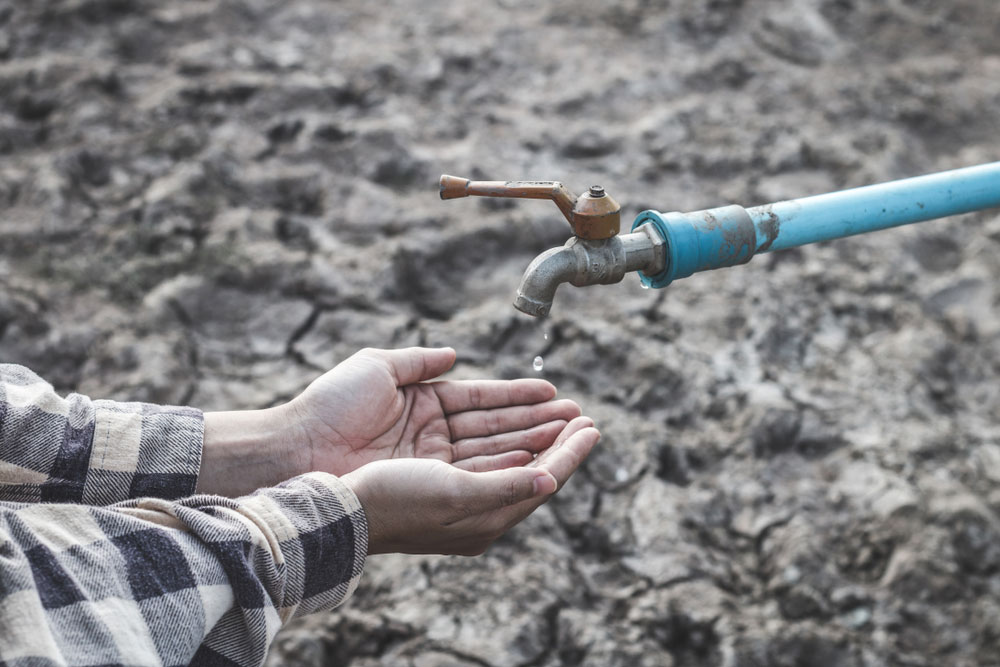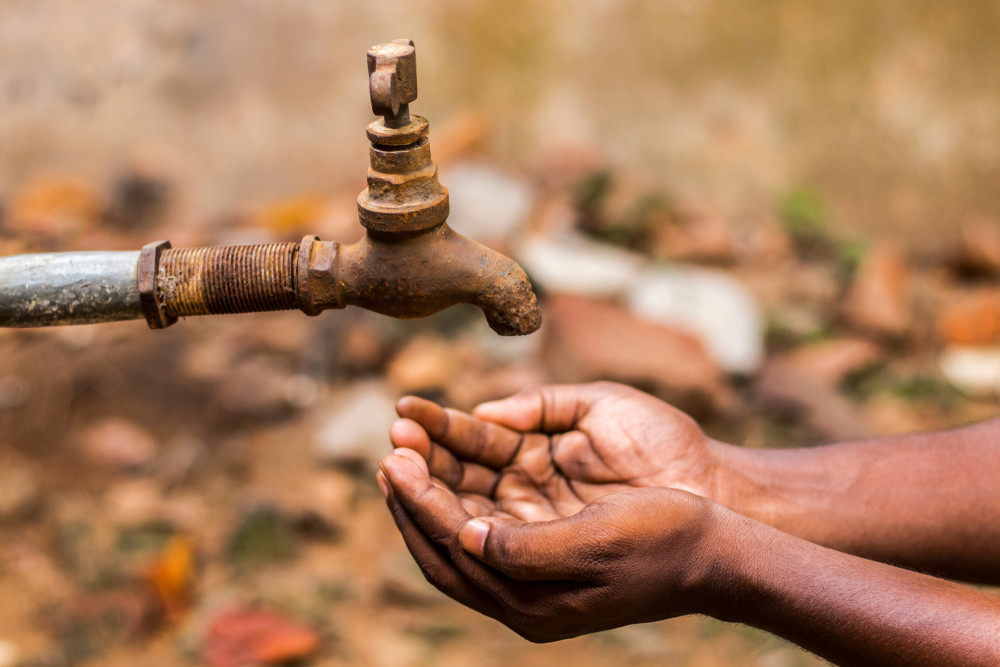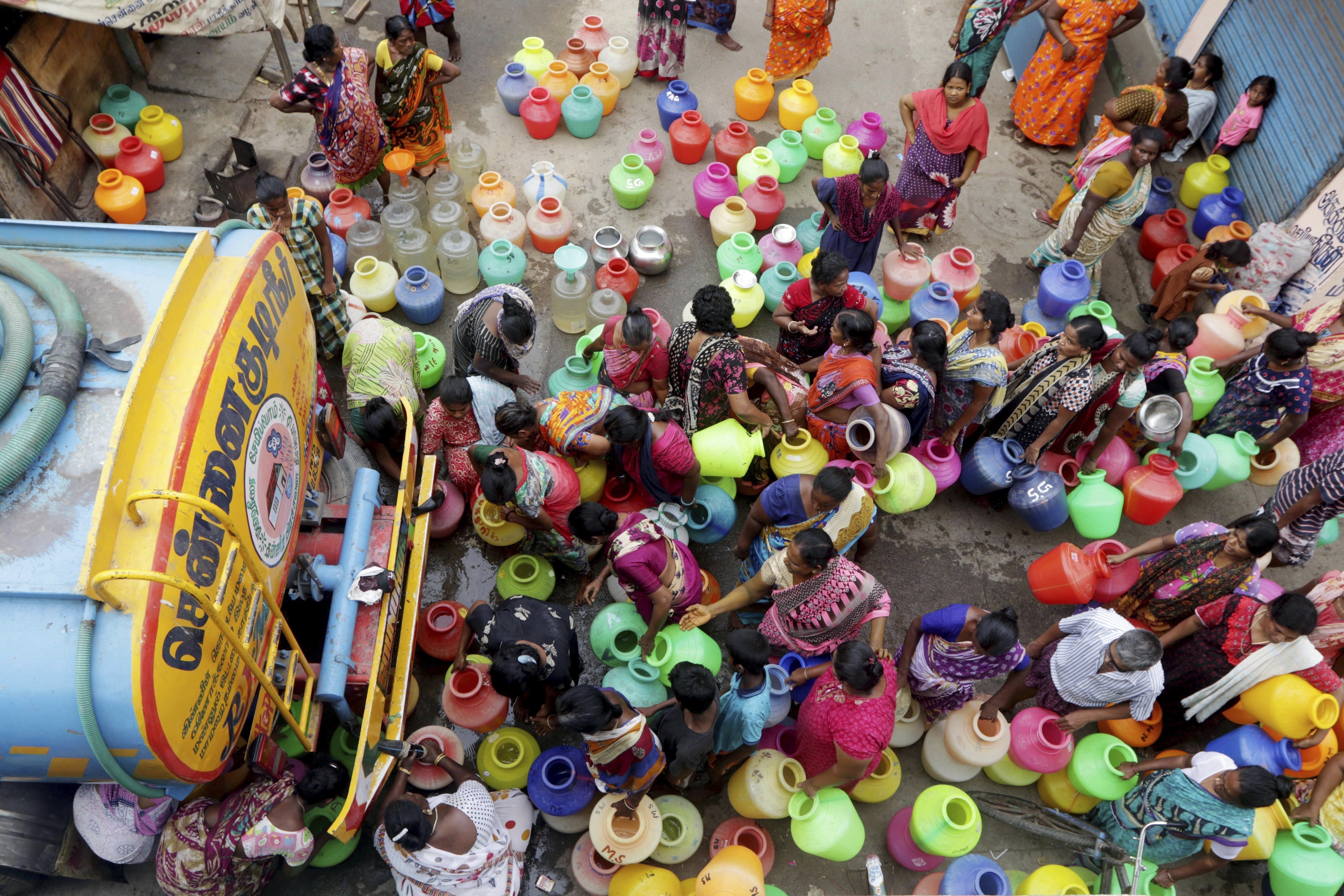The water crisis is on everyone’s lips. Volumes are being written on how to tackle this calamity — rainwater harvesting, irrigation and farming practices, restoring water bodies, interlinking rivers, and so forth.
But where is the talk about water being a public resource and a fundamental right? About the State’s elementary duty to find ways, make laws, and provide water to every citizen? Seven decades have passed since Independence but successive governments have paid scant attention to the lack of access to clean water.
There are the usual ‘roadblocks’ that Central governments cite when it comes to a pan-India solution to the water crisis. The foremost barrier is that water is a ‘state subject’ and the Centre’s hands are therefore tied in tackling the problem. This is a lame excuse. It is thus crucial to declare that the Indian State is legally empowered to fulfil its fundamental duty with regard to water. The law of the land authorizes the State to do so. What kind of law? A watertight law.
What is this law? It is the public trust doctrine, which mandates that the State is the custodian of all natural resources and has a legal obligation to control these resources for the benefit of the people.
Water is one of the most important public resources, directly affecting the Right to Life. The Supreme Court has consistently reiterated the critical importance of the fundamental right to water as a public resource.
In a series of judgments, the apex court has affirmed that the public trust doctrine is the law of the land; that the doctrine is in consonance with Articles 21 and 39(b) of the Indian Constitution. Article 21 guarantees the Right to Life. Article 39(b) enjoins that the ownership and control of the material resources of the community are so distributed as best to subserve the common good. In the landmark M.C. Mehta vs Kamal Nath case, the Supreme Court held that “[t]he State as a Trustee is under a legal duty to protect the natural resources. These resources meant for public use cannot be converted into private ownership.”
“State-owned or public-owned property is not to be dealt with at the absolute discretion of the executive. Certain precepts and principles have to be observed. Public interest is the Paramount consideration.” (Centre for Public Interest Litigation and Ors)
“When a State holds a resource which is available for the free use of the general public, the Court will look with considerable scepticism upon any governmental conduct which is calculated either to relocate that resource to more restricted uses or to subject public uses to the self-interest of private parties.” (M.C. Mehta)
There is, however, a fundamental difference between the ‘Right to Water’ and ‘Water Rights’. A report by the Unicef explains the point.
“The Right to Water needs to be distinguished from Water Rights. The Right to Water relates to the basic water requirement for life (i.e. water for drinking, cooking, washing and personal hygiene, and the essential water needs of livestock).
“‘Water Rights’ is a term that is generally used in the context of water for irrigation, industrial or commercial use, etc; that is, economic uses of water.
“The right to water as defined above is a fundamental right by judicial interpretation. The State has a responsibility to ensure that this right is not denied to any citizen or group of citizens.”
The report goes on to affirm that there can be no two views on the magnitude of the fundamental right to water.
“Between a fundamental right (life-right) and a non-fundamental use-right, the former must always take precedence over the latter; and the exercise of economic rights by some must not be allowed to jeopardise the fundamental rights of others.”
Having established that the State is the custodian of this precious public resource and that it is legally authorized to control this resource for the public good, we can now throw the question open to the experts concerning the methodology of harnessing, saving, restoring, and distributing water to every home.
The present government appears to be seized of the matter. It has constituted the Jal Shakti ministry, voicing a political will to address the critical issue of water.
One hopes that it would leave its mark — a ‘watermark’.












